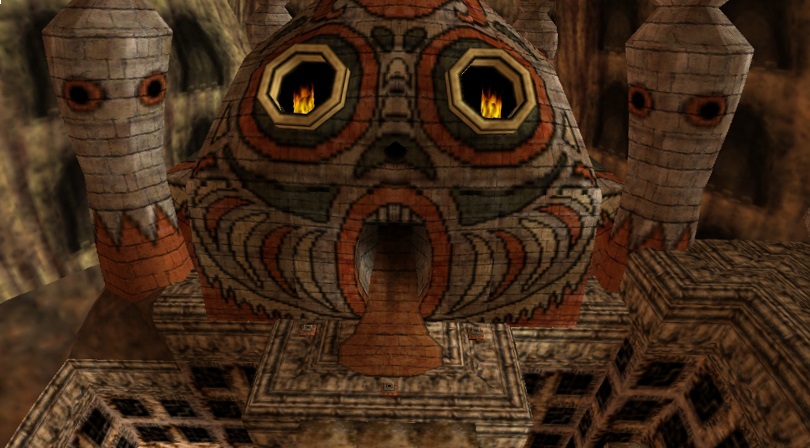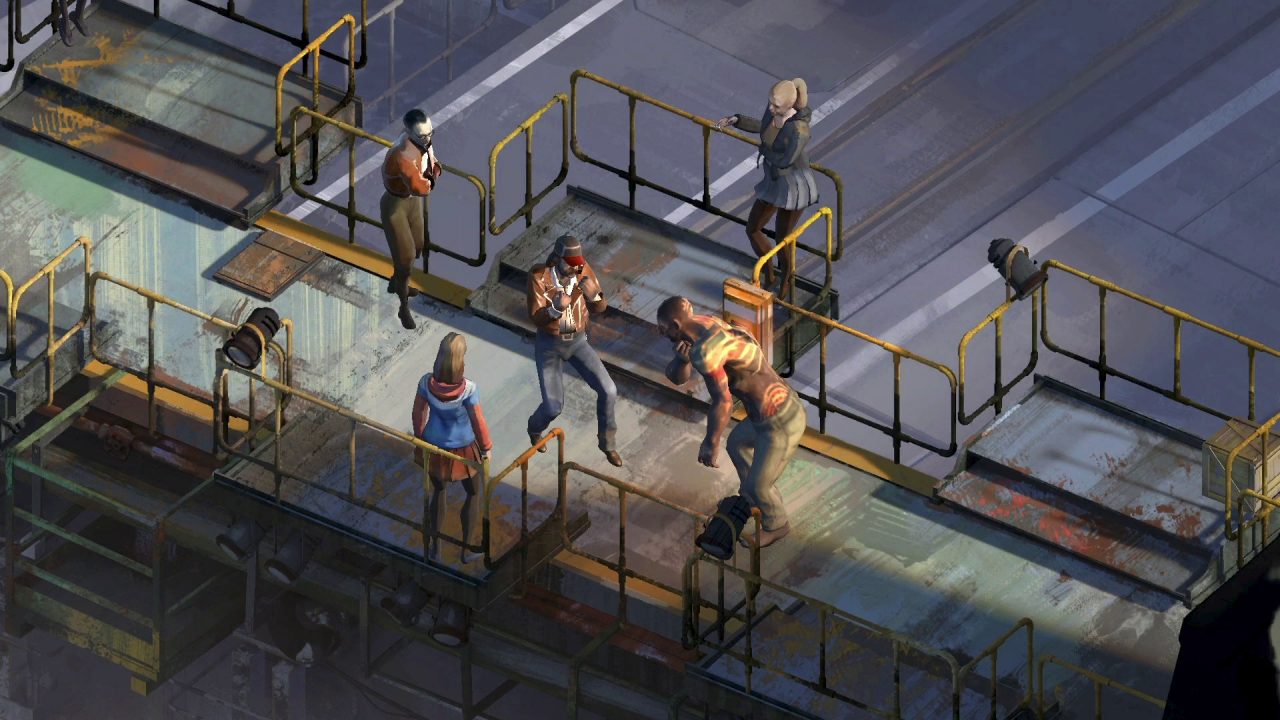1. Final Fantasy VI
Final Fantasy VI came out the year I was born, so suffice to say I didn’t play it on release. I did, however, grow up in a house with two older brothers where the game was heavily in rotation. Before they even trusted me to handle their precious games and pick up the controller myself, I remember watching this game over and over, transfixed by the drama and spectacle I saw play out in pixels. No other videogame characters felt like people the way FFVI’s cast did.
You could say childhood imagination did some heavy lifting in that regard, but so did the expressive sprites, character-based themes in the OST, and the second half’s genuine attempts to flesh the cast out by having them confront their individual traumas. My early exposure to FFVI’s narrative design ambitions doomed me to a life of caring too much about videogames.
2. The Legend of Zelda: Majora’s Mask
For us who call Majora’s Mask their favorite Zelda game, it’s not usually because of its strengths as a Zelda game. It’s that it minutely simulates the lives of a whole town of distinct NPCs for three real-time in-game days. It’s that it explored the inner lives and fears of those NPCs as they faced an existential apocalyptic threat literally hanging over their heads through completely optional side quests.
I never even beat Majora’s Mask as a kid because I could only play it through occasional Blockbuster rentals and some jerk would always overwrite my save. But I was captivated enough just studying the world’s inhabitants as they accept (or ignore) their imminent deaths. My brothers saw it as a weird and therefore bad Zelda game, so we never owned it, and in retrospect, it’s the first time my taste defined itself against theirs.
3. Dark Souls
While the first two games on this list shaped my particular interest in videogames as a kid, these next three are the ones that most fueled that interest as an adult. If Final Fantasy and The Legend of Zelda were the loves of my childhood, the Souls games are the defining series of my adult life. While I now appreciate their difficulty, that was more of a hurdle than a selling point at first.
What immediately captured my interest with Dark Souls was the spiritually isolating atmosphere, the awkwardly corporeal sound design, and the way the game conveyed meaning simply in how you move through its intricate and cohesive world. The combat was just something to get used to. Dark Souls feels janky in a way I’ve grown to love—where the jank is part of the game’s unique flavor. It’s a nearly AAA product that defies AAA games’ tendency to polish everything with a homogenous sheen.
4. Undertale
Early indie hits like Braid and Bastion rekindled my love for videogames at a time when I was becoming disillusioned with the homogenized AAA market of the PS360 era. They managed to channel ’90s nostalgia while trying something artistically fresh, and they respected my time and intelligence through focused design and storytelling. Undertale was the peak of that. I went in blind and was baffled by the way the game directly involved me—the player—in a move of technical and narrative brilliance.
It also understood how to use its vintage, minimalist style for some of the most genuinely funny and emotionally involving moments in any videogame, proving the untapped creative potential in the “dated” styles we perhaps moved past too quickly looking for the next big hardware achievement. Undertale is a perfect distillation of how old aesthetics and new ideas can come together to push the artistry and fun of the medium.
5. Disco Elysium
I knew I needed some CRPG representation here. While Planescape: Torment, KOTOR II: The Sith Lords, and Fallout: New Vegas were all contenders for that spot, Disco Elysium builds off their dialogue-driven legacies with such effortless panache that it beat them all. While those other games had to incorporate some degree of janky combat to appease industry expectations at the time of their release, Disco Elysium proves the heights you can achieve through an expressive character system, die rolls, and dialogue trees alone.
No RPG in the last decade has so drastically redefined what the genre can be. No videogame uses its genre to ask such lucid and evocative questions about our world and ourselves. A big part of my continued interest with videogames is to see how uniquely involving their players can lead to genuine insight and reflection. No game has validated that curiosity more than this one.
Non-RPG 1: Street Fighter III: Third Strike
I obviously love all the games in this list, but none of them can contend with the sheer hours I’ve put into Third Strike. It wasn’t my first Street Fighter—I already messed around with II and IV—but it was the one that ignited a still-burning passion for the technical and artistic side of fighting games. The mechanics are deep without being overwrought, and the gorgeous concept and pixel art give it a timeless personality.
But most importantly, Third Strike was the go-to title for my friend group in undergrad. Weed smoke spilled out from my room in our shared house as we duked it out until our thumbs got blisters. The group of us still bond regularly over fighting games, and it all stemmed from our shared dedication to this classic. Third Strike may no longer be at the top of the rotation, but its impact is second to none.
Non-RPG 2: Metal Gear Solid 2: Sons of Liberty
Some stories are downright prophetic. From Madame Bovary‘s study of how people’s self-perceptions can be twisted by the fabricated representations they see in media (fictional or, nowadays, social) to Citizen Kane‘s portrayal of the hollowness that follows capitalist ambition and glory in the public eye and the dubiousness of mass media “truths.” Sons of Liberty is not only still a perfectly playable stealth/action game, but a metacommentary on interactive virtual technology’s potential as an indoctrinating military tool. It’s also a straight commentary on the globalized control of corporations on our sense of reality as they’ve become entrenched in politics. Last but not least, it exposed the toxic and self-aggrandizing mindset of pandered Gamers more than a decade before Gamergate when they had to play as the deliberately “less cool” and “effeminate” Raiden instead of the more phallic Solid Snake. Now that’s prophetic.





